From the very beginning of his career, it was evident that film director Tim Burton had a strong grasp of his own unique neo-gothic ethos. Early efforts like “Beetlejuice” (1988) and“Edward Scissorhands” (1990) demonstrated his flair for skewed visuals and macabre, broken characters, while their financial success made Burton a household name and granted him the popular cachet necessary to choose his own projects and manage them with minimal studio interference.
Burton’s friendship with actor Johnny Depp led to a series of eight profitable –if not always creatively inspired– collaborative productions. Their most recent film is “Dark Shadows,” a comic take on the late 1960s supernatural soap opera of the same name.
While Depp’s and Burton’s fandom of the source material makes the film come off as affectionate enough, myriad problems with tone and plot relegate this effort to the most die-hard Burton fans only.The story focuses on Barnabas Collins (Depp), a 200-year-old vampire and patriarch to the famous Collins clan of Maine (even the town, Collinsport, is named after them), who have fallen on hard times.
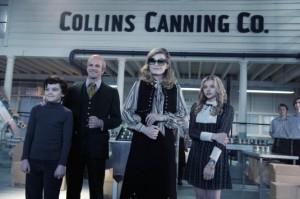
Barnabas is awakened two centuries after being turned into a vampire and imprisoned in a chain-bound coffin by the jealous witch, Angelique Bouchard (Eva Green). Barnabas’ complicated back story (the TV series, as a daily program, produced over 1,200 episodes during its 5-year run) is related in all of five minutes at the start of the film.
Once Barnabas is freed in 1972, he quickly moves to reinvigorate the flagging family fish canning business, while dodging the homicidal affections of the ageless Angelique and navigating the mysterious modern contrivances with which he is unfamiliar. Within the first ten minutes, we get a jarring shift from gothic melodrama to period camp. Too many Depp one-liners abound as Barnabas has his first encounter with electric lights, automobiles, and a television set. These barely qualify as droll at their best, and Depp’s tortured diction becomes grating very quickly.
Although many of the characters are at least partly based on ones from the TV series, this feels more like a typical Tim Burton ensemble than an adaptation. Weird, dark-haired, outcast antihero? Check. Pale, doe-eyed, overly-precious love interest? Check. Barnabas sees the image of his long-lost love, Josette du Pres, in his great-great-great-grand-nephew’s governess, Victoria “Vicky” Winters, whose real name is Maggie Evans (in an odd combination of distinct characters from the TV series; both Josette and Vicky are played by Bella Heathcote).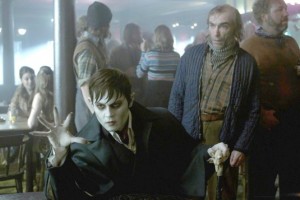 Confused yet? You’re not alone. As the film staggers onward, it becomes clear that nobody involved in its production had a grasp on whether they wanted to emulate the moody atmosphere of the series, or preferred to lean in a campier, farcical direction. There just isn’t enough room for both in 113 minutes. Depp is clearly having fun (as is Burton, presumably), but as with some of their previous, more rambunctious collaborations, they are often in desperate need of someone to rein them in when they begin to indulge themselves too lustily. Eva Green does Depp no favors with a preening,too-far-over-the-top performance that robs Barnabas’ foil of all mystery and menace.
Confused yet? You’re not alone. As the film staggers onward, it becomes clear that nobody involved in its production had a grasp on whether they wanted to emulate the moody atmosphere of the series, or preferred to lean in a campier, farcical direction. There just isn’t enough room for both in 113 minutes. Depp is clearly having fun (as is Burton, presumably), but as with some of their previous, more rambunctious collaborations, they are often in desperate need of someone to rein them in when they begin to indulge themselves too lustily. Eva Green does Depp no favors with a preening,too-far-over-the-top performance that robs Barnabas’ foil of all mystery and menace.
The rest of the supporting cast (including Michelle Pfeiffer, Jonny Lee Miller, Jackie Earle Haley, Chloë Grace Moretz, and Helena Bonham Carter) are generally passable, but they are lost amid the more overbearing performances. Too many overlong, talky scenes between peripheral characters – particularly in the second act– frequently grind the narrative to a halt, and seem to serve little purpose otherwise.
Despite all of these issues, there are a few positives. The production design, as with most of Burton’s films, is top-notch. The well-composed sets and fine costumes add a great deal of verve that is sorely lacking in the script (written by Seth Grahame-Smith, the keen creative mind behind “Pride and Prejudice and Zombies” and “Abraham Lincoln, Vampire Hunter”). Further,“Dark Shadows” isn’t as overwhelmingly twee as some of Burton’s recent films (particularly 2010’s “Alice in Wonderland” and his 2005 “Charlie and the Chocolate Factory,” both featuring Depp in prominent roles).
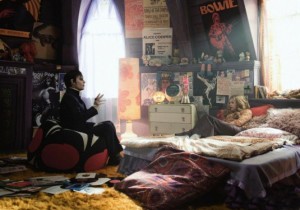
While that isn’t exactly a ringing endorsement, it may mean something to those who find Burton’skookier ventures difficult to stomach. Ultimately, one’s tolerance for “Dark Shadows” comes down to how one approaches Tim Burton’s filmic milieu. Anyone hoping for something dark, like his 2007 adaptation of “Sweeney Todd,” will be disappointed, but fans of the TV series and hardcore devotees of the director’s work will probably find something to like about “Dark Shadows.”
– by Demian Morrisroe
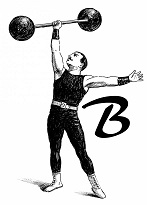

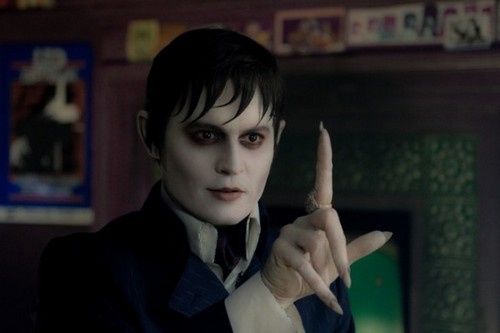
1 Comment
Are you crazy a b!